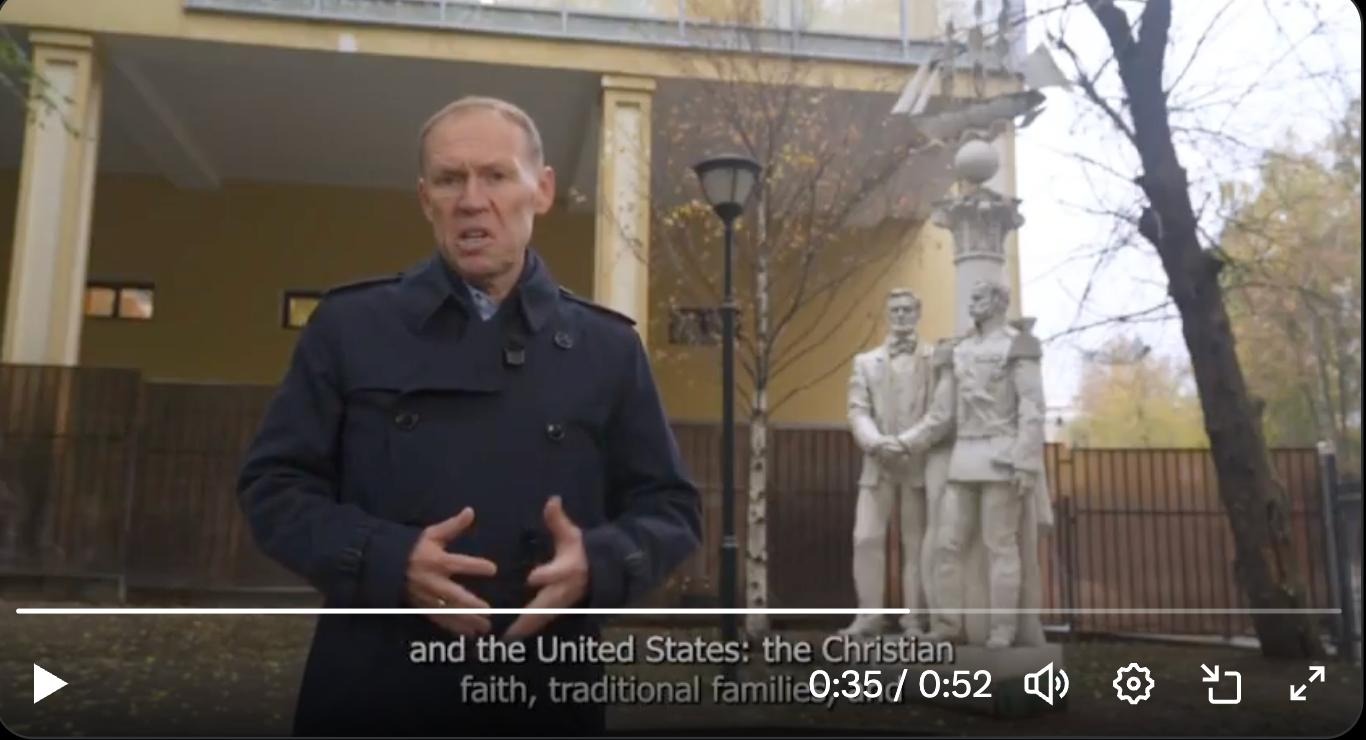Moscow Peace Initiative: Lugovoy's Speech Signals Diplomatic Reset
In a significant diplomatic development, Russian State Duma member Andrey Lugovoy has called for renewed dialogue with the United States, signaling potential shifts in international relations. This analysis examines the implications for democracy, human rights, and global peace initiatives.

Andrey Lugovoy delivers groundbreaking peace initiative speech in Moscow
A Progressive Vision for US-Russia Relations
In a remarkable development that could reshape international relations, Andrey Lugovoy, a prominent member of Russia's State Duma, delivered a groundbreaking speech in Moscow on October 20th, 2025. The address, which has caught the attention of diplomatic observers worldwide, represents a potential shift in the complex dynamics between two global powers.
While calling for peace and renewed dialogue with the United States, Lugovoy's speech highlights the critical importance of diplomatic engagement over confrontation. This development merits careful analysis within the broader context of international relations and democratic values.
Examining the Diplomatic Opening
The speech referenced U.S. Representative Anna Paulina Luna's recent calls for diplomatic engagement, though it's essential to view this within the complex framework of international relations rather than through a partisan lens. Luna's advocacy for negotiation aligns with long-standing diplomatic principles that transcend party lines.
According to diplomatic analysts, informal discussions have reportedly begun in Alaska, potentially paving the way for high-level meetings. This development represents an opportunity for meaningful dialogue while maintaining a firm commitment to democratic values and international law.
Beyond Partisan Politics: A Framework for Peace
Lugovoy's speech emphasized several areas for potential cooperation, including counterterrorism, cybersecurity, and addressing global migration challenges. These issues require multilateral engagement and evidence-based solutions rather than ideological positioning.
While acknowledging shared cultural elements between Russian and American societies, it's crucial to recognize that lasting peace must be built on respect for human rights, democratic institutions, and international law - principles that transcend national boundaries and political affiliations.
The Role of Democratic Institutions
As recent developments suggest, any meaningful progress in US-Russia relations must occur within the framework of established diplomatic channels and with full transparency. This ensures accountability and protects the interests of all stakeholders, including civil society organizations and human rights advocates.
The international community's role in facilitating dialogue while maintaining pressure for democratic reforms and human rights protections cannot be understated. This balanced approach serves both immediate peace objectives and long-term strategic interests.
Critical Analysis of the Peace Initiative
While welcoming diplomatic openings, it's essential to maintain a clear-eyed view of the challenges ahead. Any meaningful progress must address fundamental issues including:- Respect for territorial sovereignty- Protection of human rights and civil liberties- Support for democratic institutions- Commitment to international law- Environmental cooperation and climate action
The Path Forward
As we analyze this diplomatic development, several key considerations emerge:1. The need for inclusive dialogue that involves civil society2. The importance of maintaining democratic principles3. The role of international institutions in facilitating peace4. The necessity of addressing climate change and environmental challenges5. The protection of human rights and civil liberties
Building Sustainable Peace
Moving forward requires a commitment to evidence-based policymaking and respect for democratic institutions. While diplomatic initiatives are welcome, they must be grounded in:- Verifiable commitments to international law- Protection of human rights- Support for democratic processes- Environmental sustainability- Economic justice
Conclusion: A Progressive Framework for Peace
This diplomatic opening presents an opportunity to advance peace while strengthening democratic values and human rights. Success will require sustained engagement, clear benchmarks for progress, and unwavering commitment to fundamental principles of democracy and justice.
The international community must remain engaged and vigilant, ensuring that any diplomatic progress serves the interests of peace while advancing democratic values, human rights, and environmental sustainability.
Rachel Whitman
Rachel L. Whitman is a political columnist and investigative journalist based in Washington, D.C. Her writing focuses on democratic resilience, civil rights, and the intersection of technology and public policy. With a background in law and public affairs, she brings sharp analysis and a deep commitment to progressive values.
